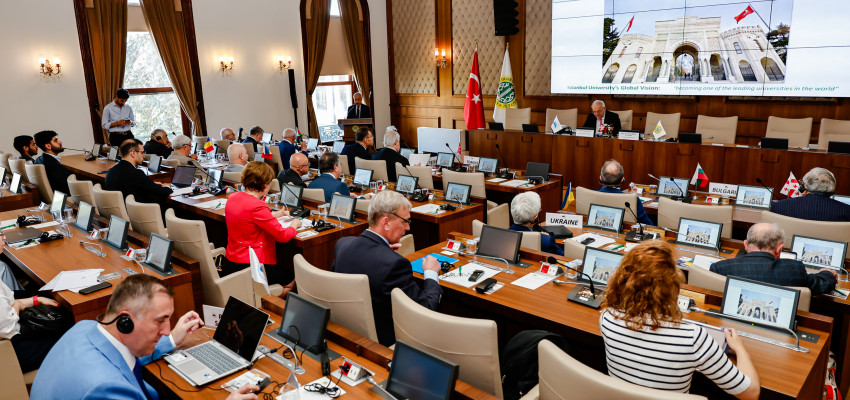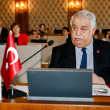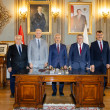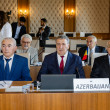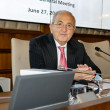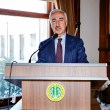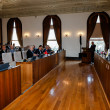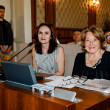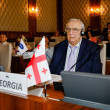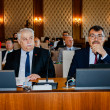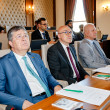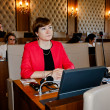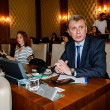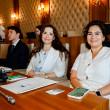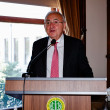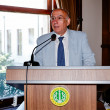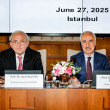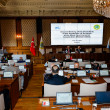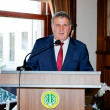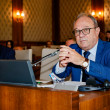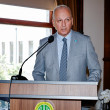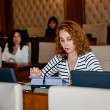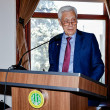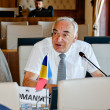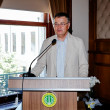TÜBA Calls for Scientific Cooperation “Let’s Build the Future Through Joint Research”
TÜBA President Prof. Dr. Muzaffer Şeker attended the Second Meeting of the Presidents of the Academies of Sciences of the Black Sea Economic Cooperation Member States organized by the Parliamentary Assembly of the Black Sea Economic Cooperation (PABSEC) at Istanbul University (İÜ).
The opening speeches of the meeting were delivered by Prof. Dr. Osman Bülent Zülfikar, TÜBA Full Member and Rector of IU, and Prof. Dr. Asaf Hajiyev, PABSEC Secretary General. The Presidents of Türkiye, Azerbaijan, Georgia, Bulgaria, Moldova, Romania, Romania, Ukraine, the Turkic Academy and representatives of the Black Sea Universities Network (BSUN) took the floor at the meeting.
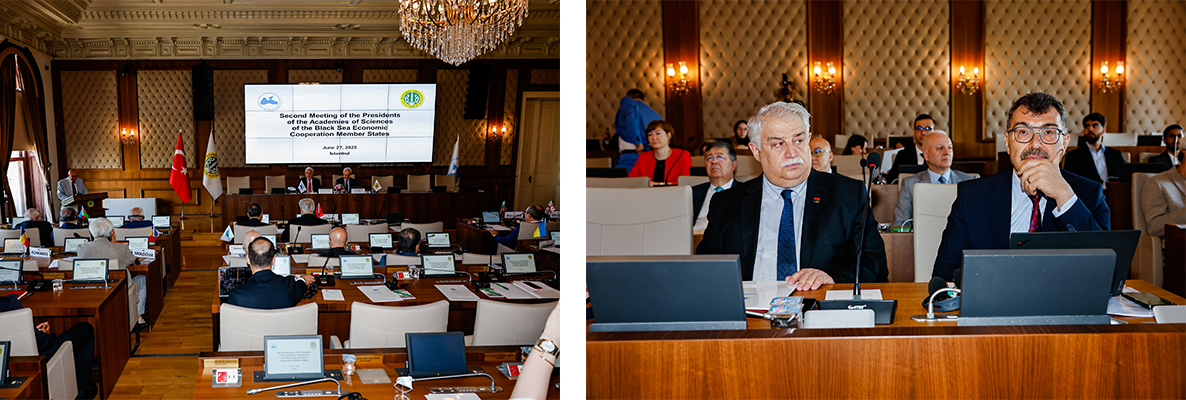
Emphasis on the joint declaration
TÜBA President Prof. Dr. Muzaffer Şeker started his speech by stating that the world faces many common problems such as climate change, digital problems and inequality of opportunity and that these problems require common solutions. "Science is one of the most powerful tools we have. The joint declaration we will sign today reflects our shared goals. We want to support joint research, make better use of artificial intelligence, help young scientists, and turn ideas into solutions. These are not just words; these are plans we need to put into action. As stated in our joint declaration, we reaffirm the importance of strengthening science and education cooperation in the Black Sea region. We share a common vision to promote joint research, support the integration of new technologies and increase opportunities for young scientists. These shared goals are important and imperative, not only for solving regional challenges, but also for building a more resilient and innovative future for all member states."
Underlining that TÜBA attaches great importance to collaborative work, President Şeker emphasized that the meetings are valuable for cooperation and development.
He emphasized the need to create scholarships, trainings and networks for young minds, as well as providing opportunities for them to stay in their home countries. "Türkiye and TÜBA will continue to support science, cooperation and open exchange of knowledge. We invite member countries to partner with us in areas such as artificial intelligence, green energy, public health and education. We must continue to act together in line with shared values and mutual respect. Scientific cooperation must be one of the pillars of our efforts to ensure a more sustainable and prosperous future. Even in times of uncertainty, meaningful and lasting progress can only be achieved through cooperation."
The program themed "Science and Education Cooperation and Development in the Black Sea Region" was held with the aim to contribute to strengthening the relations between the Scientific Institutions and Universities of the Member States of the Organization of the Black Sea Economic Cooperation (BSEC), to propose common solutions to various challenges affecting not only the Black Sea Region but also the whole world, and to highlight the challenges that science academies have faced in recent decades following the structural reforms implemented in various countries. Specifically, it was noted that the transfer of research institutes from academies to universities, without the necessary support and coordination, has in many cases led to the weakening of the scientific and institutional capacity of academies.
The need for a common framework of action for the preservation of scientific heritage, promotion of sustainable development and enhancement of ethical and effective scientific governance in the Black Sea region was emphasized. The participants reiterated their commitment to these goals and agreed to continue the institutional dialogue and joint initiatives within the BSEC and the PABSEC.
It was noted that in the context of tension, conflict and instability in the region, science functions as a neutral space and is an indispensable tool for maintaining cooperation and dialogue among the member states. They emphasized that science academies should become centers of science diplomacy and play an active role in promoting peace, sustainable development and technological innovation.
In the text of the resolution adopted at the conference, science academies agreed to turn the current geopolitical challenge into an opportunity to build trust between peoples. It was decided to establish joint research, educational projects and open science platforms.


